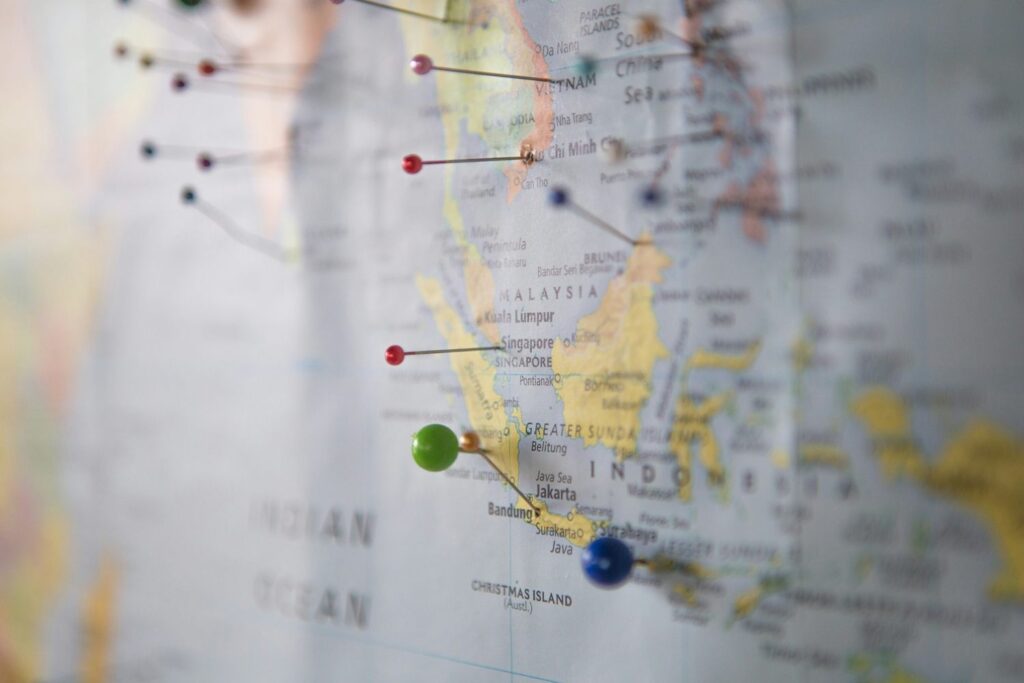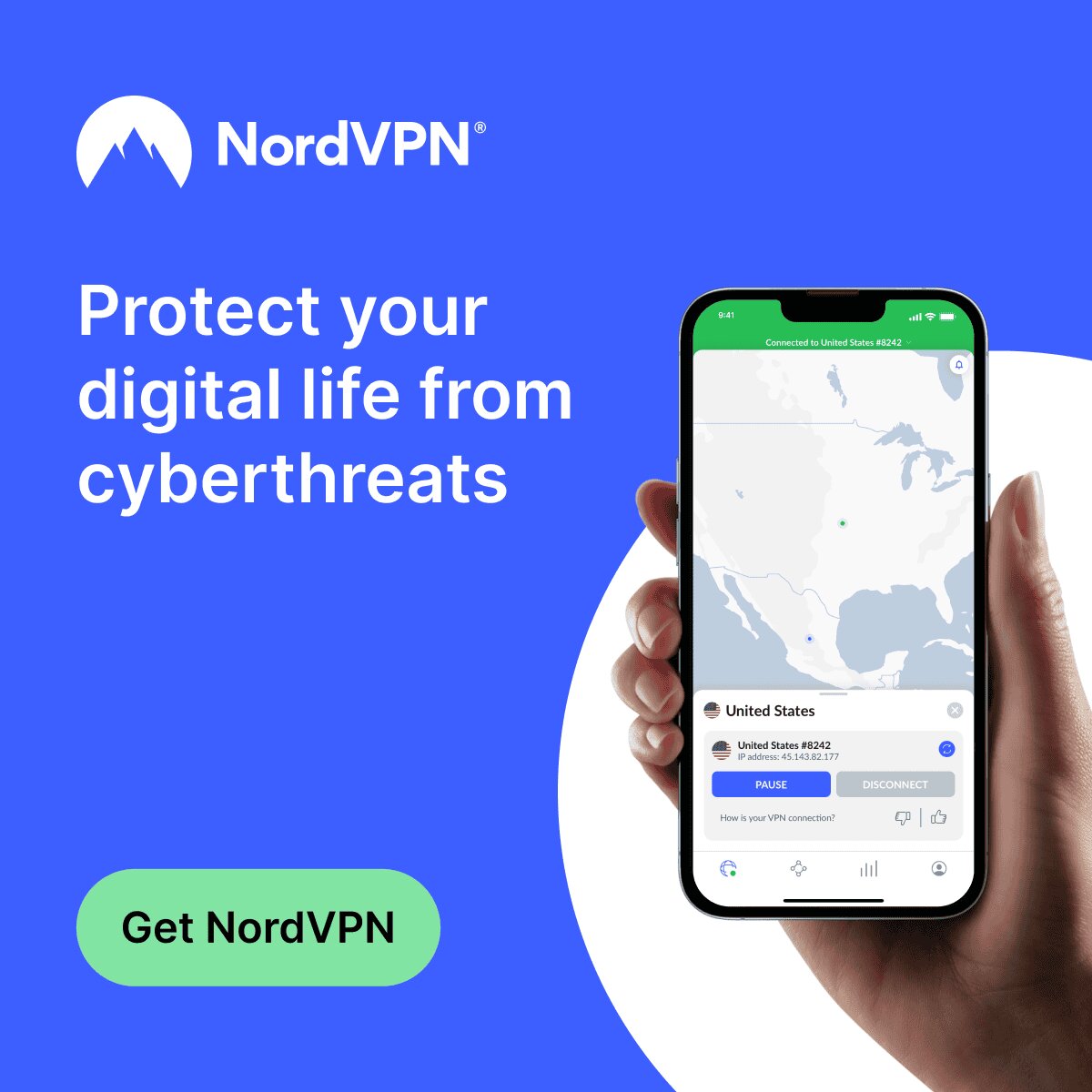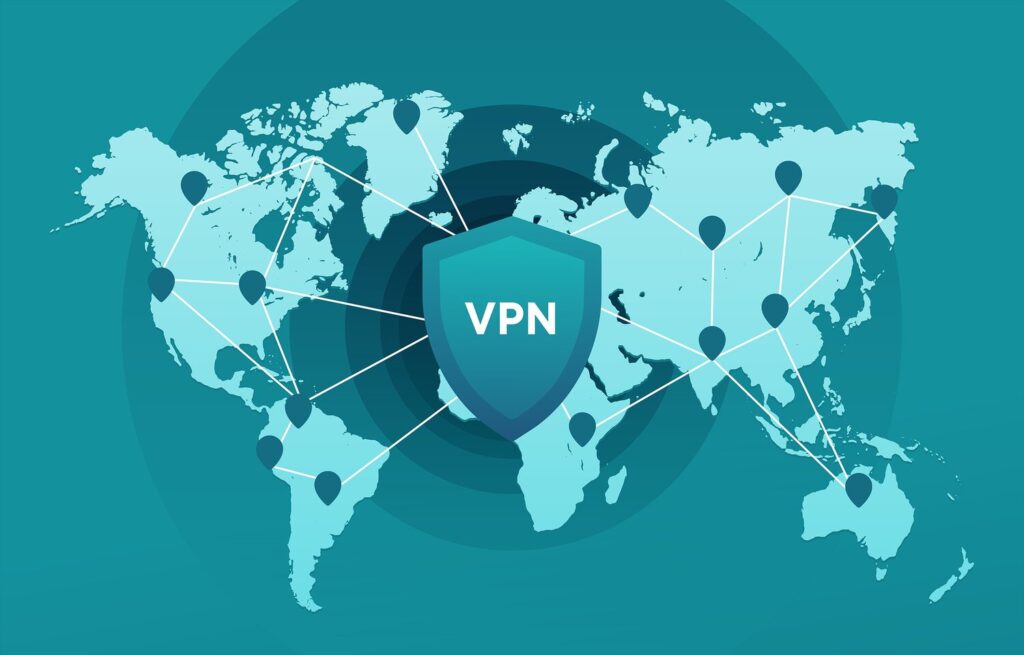
PIA VPN Review – In-Depth Breakdown (2025 Edition)
Whether you want to safeguard your browsing activity from avaricious data harvesters, defy government censorship or just watch foreign TV shows that aren’t available locally, a VPN can be a very useful tool in your digital arsenal.
Especially for digital nomads who find themselves abroad long term, it’s a way to get the best of both worlds. You can savor the sweet freedom of life overseas while simultaneously enjoying the sweet freedom of an unfettered internet.
PIA is an established presence in the VPN market. Despite being founded in the UK, it’s become especially popular in the US, where it operates servers in all 50 states.
In this review, we’re going to look at how it stacks up in against its competitors in terms of privacy, speed and special features.
Company Background
Not to be confused with Pakistan International Airlines, PIA (Private Internet Access) was founded in 2010.
After operating for 9 years, it was acquired by Kape Technologies, which also owns ExpressVPN and CyberGhost.
Kape used to have a bit of a bad rep for its association with ad tech and potential malware, but the company has tried to clean up its image by doing what is basically a complete about face and claiming to protect data, rather than harvest it.
PIA is now headquartered in the US, which for some users raises privacy concerns, as we’ll go into a bit later.
Despite its jurisdiction, it has a good reputation for offering one of the most stable, privacy-minded VPNs on the market.
Core Features
PIA has a ton of features with plenty of options for customization, from the protocols right down to the appearance of the interface.
Security & Privacy
There are two main tunneling protocols available: OpenVPN (UDP or TCP) or WireGuard. PIA also offers IKEv2 for iOS but not on other operating systems.
AES 128-bit encryption is used as standard for OpenVPN, but you can select 256-bit instead if you want even more protection. ChaCha20 encryption is built by default into WireGuard.
Like most paid VPNs, PIA doesn’t collect any connection or browsing logs. This was audited by Deloitte in 2024.
There are also lots of additional security tools, including:
- Kill switch. This blocks connections as soon as your VPN drops, so that none of your data is exposed. PIA’s app also has an advanced kill switch, which blocks all connections even when the VPN is not active, so that nothing automatically downloads without your permission.
- DNS leak protection. This ensures your ISP cannot snoop on your browsing. You can rely on the default option or configure it with custom settings.
- Antivirus for an additional fee. PIA is not an antivirus specialist, but it’s an interesting option to consider. The company uses a cloud database of viruses and trojans to protect your computer, while promising greater privacy than more mainstream options, since their AV software lets you control what info is logged and tracked.
Performance & Server Network
PIA boasts a network of 10 Gbps servers, which is the highest server speed we’ve seen for VPNs, on a par with Surfshark, Mullvad and NordVPN. These are spread across 91 countries – although like ExpressPVN, PIA don’t stat the exact number of servers, which is a minor black mark in our book.
The servers are limited in the MEA region, which is (annoyingly) not unusual for VPN providers, although PIA notably has options in Saudi Arabia and Nigeria.
All the servers are RAM only, which means data is deleted every time they reboot, ensuring greater security.
In an ideal world, you can top out at maximum speeds of 450 Mbps – which is sufficient for almost all use cases we can think of, but not as good as the 950+ Mbps that Surfshark and Proton can reach.
In the real world, however, your connection speed is going to massively depend on where you are geographically, as well as the strength of the internet connection at your flat, Airbnb or local cafe.
We’ve gone into more detail about speeds a bit further down, but as a general idea, you can expect to reach about 83 Mbps on a 100 Mbps connection.
Latency is obviously massively affected by your distance from a server, but the PIA app helpfully shows a latency estimate for each server upfront, so you can make an informed decision about where to connect.
Special Features
For security-focused people, the multi-hop function is probably PIA’s most useful feature. It can be configured manually using SOCKS5 or automatically using Shadowsocks to route your traffic through an additional VPN server for an extra level of encryption.
Although there are a limited number of servers that support Shadowsocks, these servers are also set up for obfuscation, so that your VPN traffic looks like normal traffic. This is super handy for avoiding firewalls that are set up to block VPN connections.
Like most top VPNs, PIA comes with split tunneling, so that you can choose whether you want any apps or websites to bypass the VPN. This can be useful if there are sites that aren’t loading with the private network active.
Another fairly standard feature is the auto-connect function, which can be configured to activate the VPN automatically when you join a particular network.
PIA also has its own built-in ad blocker, dubbed MACE, which uses a curated, continuously updated database to prevent trackers, ads and malware.
As an add-on, it’s possible to purchase a dedicated IP that is assigned exclusively to you. Unlike alternating IPs that multiple users use, dedicated IPs usually have a better online reputation, since only your online behavior affects their status. This means that you should encounter fewer CAPTCHAs and avoid blocklists.
Speed, Streaming & Torrenting Performance
Overall, we were satisfied with PIA’s performance in the speed stakes. It’s not the fastest option out there, but it performs well across all the areas that we tested, including streaming and torrenting.
Speed Test Results
It’s always important to take speed tests with a pinch of salt, since there’s so much variability. The actual rate of download and upload can be massively affected by the time of day. One server we tested had almost no usage during the late morning but heavy usage in the evening, which slowed down the connection.
What does seem to work well with PIA is its load-balancing algorithm, which assesses server usage, then automatically connects you to the fastest server in your vicinity – though of course you can also manually choose a location.
To give you a general idea of the kind of slowdown that PIA’s VPN causes, we tested it at various points throughout the day to provide an average percentage change in download, upload and latency compared to our standard connection.
Downloading: 16.10%
Uploading: 32.38%
Latency: 60.26%
Our results are based on connecting from Europe to a European server. The latency shot up when we selected a US server, as you would expect, but the change in download and upload speeds was minimal. The decrease in download speed in particular was just a couple of percentage points.
Streaming & P2P Support
PIA has really got their bases covered on this front. First up, the company has servers that are optimized for streaming. Using these, we were able to access Netflix, Amazon Prime, Disney+ and BBC iPlayer, among others.
We didn’t have any problem watching content in 4K from different Netflix libraries around the world. In fact, PIA seemed to offer one of the most stable streaming connections that we’ve experienced with a VPN.
Similarly, our torrenting speeds were solid, no doubt thanks to PIA’s support for P2P on all its servers.
Unlike a lot of competitors, PIA can also accommodate port forwarding, which massively improves torrenting speeds. Not all its servers support this functionality, but we didn’t have any problems finding a suitable option nearby.
Security and Data Protection
As its name would suggest, PIA is keen on promoting its privacy credentials. While it’s not in the best jurisdiction and isn’t as good as some competitors about third-party audits, we were satisfied that the company is doing enough to warrant a thumbs up.
Encryption & VPN Protocols
PIA offers the two most popular VPN protocols on all supported devices.
WireGuard is the most lightweight (just 4,000 lines of code), which makes it faster without trading off against security. It’s increasingly becoming the go-to option for VPN providers.
OpenVPN is a lot more complex (at least 70,000 lines of code) but is much more configurable. For example, there’s a choice between TDP (transmission control protocol), which is slower but more reliable, and UDP (user datagram protocol), which is faster but less reliable. It’s also possible to select the remote port and the level of encryption.
AES-256 is the gold standard of VPN encryption, but AES-128 will still defend very well against brute force attacks and is better for slower connections.
PIA lets you select the MTU (maximum transmission unit) for both WireGuard and OpenVPN through its app. This means that you can select whether you want large or small packet sizes to travel through your connection, depending on the stability of the tunnel.
Finally, iOS users can use IKEv2 as a backup option. This protocol is optimized for mobile because it was designed to maintain a stable connection, but it’s also slower and less secure.
While for newbies the array of options might be confusing, you can always just click the connect button and not worry about the details!
No-Logs Policy & Audit History
PIA has a strict no-logs policy, which covers everything from user IPs, connection timestamps and bandwidth logs to browsing history.
The company does collect some limited data, including email addresses for account management – although pretty much everyone apart from Mullvad does that. It also stores payment data and your zip code, so that the checkout interface can correctly charge you according to local tax laws. It’s possible to avoid this by paying using cryptocurrency.
Debugging logs are turned off by default, but you can choose to have these temporarily activated, which can be useful if you’re having issues with the software and want detailed help from customer support.
Good news: PIA’s logging policy has been independently audited a couple of times, most recently by Deloitte in 2024. The report is available for all subscribers to peruse.
Bad news: PIA isn’t best-in-class when it comes to audits. Competitors like NordVPN have regularly scheduled audits, while others like Mullvad have undergone more thorough investigations into their infrastructure.
Jurisdiction & Privacy Implications
PIA is incorporated in the US, which comes with several privacy issues.
On the face of it, because PIA stores no logs, it has no data to turn over. However, it’s well documented that American companies have been pressured by intelligence organizations and/or forced by the courts to begin secretly storing logs for some users in the past.
The US is also a member of multiple intelligence-sharing organizations, including Five Eyes, Fourteen Eyes and so on, which means data the government gathers is shared with other nations.
To try and alleviate at least some user concerns, PIA publicly publishes a quarterly transparency report. This details the number of court orders, subpoenas, warrants, state notices, federal notices and informal requests issued by foreign governments that the company has received in the past 3 months.
However, since in some cases US companies can be issued with a gag order preventing disclosure of data requests, this isn’t necessarily to be blindly trusted.
Pricing and Subscription Plans
PIA has a single plan that includes access to all its features and unrestricted bandwidth. It boasts aggressively discounted introductory offers for annual and triannual subscriptions – which is great when you sign up, but less great when it comes to renewal.
Although quite a few VPN providers play this game, PIA’s renewal quote is almost 4 times as much on an annual basis and 5 times as much on a triannual basis as the intro rate.
Fees are displayed as per month, but the entire price must be paid upfront.
Plan Breakdown
Compared to both CyberGhost and ExpressVPN, which are also owned by Kape, PIA is the cheapest sibling.
Single-month subscription: $11.95.
12-month subscription: $3.33 per month ($38.28 total).
36-month subscription: $2.03 per month ($79 for three years, plus a bonus free 3 months).
It’s also possible to purchase a dedicated IP on top of the core VPN:
Single-month subscription: $5.
12-month subscription: $4.25 per month ($51 total).
36-month subscription: $2.50 per month ($90 total).
Finally, you can also get PIA’s antivirus software as part of the bundle for an additional fee:
Single-month subscription: $4.50.
12-month subscription: $2 per month ($24 total).
36-month subscription: $1 per month ($36 total).
There’s a 7-day free trial for Android and iOS users, but not PC users.
Payment Options & Refunds
PIA’s website accepts credit cards, debit cards, PayPal and cryptocurrency.
If you subscribe and aren’t happy with the service, you can get a full refund as long as you contact customer service within 30 days, either by email or live chat. It doesn’t really matter why you want to cancel, but you still must go through the rigamarole of explaining it to a human being.
This money-back guarantee is only open to new users (for obvious reasons) and covers all forms of payment, including crypto, which is quite unusual.
It doesn’t cover purchases made through the Apple App Store – this is quite a common exclusion due to Apple’s payment terms.
Customer Support Experience
24/7 live chat is available for existing subscribers and potential customers. That’s great news for digital nomads, as it means you’ll be able to access support at any time, no matter where you are in the world.
The chat function starts off with an AI bot, but it quickly offers you the option to speak to a human. We were put in touch with someone within a couple of minutes, which is a good standard for VPN live chats.
Alternatively, you can email customer support, allegedly in English, French, German and Romanian. We just stuck with English and had no issues!
The help center is, frankly, a bit bizarre. For starters, the design is a mess, with a heavily featured news section that hasn’t been updated for almost two years.
Similarly, the community forum appears to have been abandoned – which is probably a good thing, since it’s got a useless interface anyway.
We also had issues getting the guides to load for the various supported devices.
Pretty much the only thing that did work on the PIA support page was the knowledgebase with its simple FAQs and troubleshooting advice, but this also hasn’t been updated for a while and was frankly unhelpful at answering our questions.
Basically, it’s a good thing that we had such a good experience with the live chat and email, because PIA has the worst support center we’ve seen yet!
Pros and Cons
Pros:
✅ Unlimited devices per subscription
✅ Supports all major operating systems
✅ 24/7 live chat
✅ Dedicated streaming servers
Cons:
❌ Massive price hike on renewals
❌ Terrible help center
Comparison With Other VPNs
| Download/Upload Speed Loss | Number of Servers | Netflix Access | Price Per Month (Annual Subscription) | |
| PIA | 16.1% / 32.38% | Not available | Yes | $3.33 |
| Surfshark *Surfshark One | 7.72% / 32.24% | 3,200 | Yes | $3.39 |
| NordVPN *Plus | 5.34% / 3.39% | 7,525 | Yes | $5.99 |
| Proton *VPN Plus | 5.49% / 2.15% | 9,616 | Yes | $4.99 (includes VAT) |
*We’ve selected the midrange option for each service listed above, rather than the basic or premium plan. Speeds and prices will vary according to geography.
PIA isn’t the fastest VPN, but it is acceptable for most purposes. Plus, the streaming works a treat! The price and privacy policies also stack up favorably against the competition, as does the customer support.
User Reviews and Ratings
PIA has an excellent rating on Trustpilot, managing 4.3/5, which is one of the highest for a VPN, trailing only Surfshark.
On the Google Play Store it has 4.5/5, while on the Apple App Store it scores 4.7/5.
What people like:
It works worldwide. Reviewers praise its broad server network and effectiveness across countries.
It’s affordable. The prices are some of the best on the market.
The software is lightweight. Users note that PIA is quick to install and doesn’t slow down their computer.
What people don’t like:
It disconnects every so often. Android users in particular complain that they sometimes get booted off and are forced to manually reconnect.
The auto-renew policy. Customers complain that they don’t receive adequate alerts about renewal and/or that the renewal fee is much higher than their initial subscription. This is, unfortunately, not something that is unique to PIA but a common feature of many VPNs.
Final Verdict & Recommendation
As we mentioned right at the start, PIA is especially popular in the States – and with good reason, given the speed and diversity of US servers. However, it’s also a top option for international travelers, since it has a broad and – most importantly – reliable network of servers around the world.
It comes with a bunch of handy features, including multi-hop for added security and port forwarding for torrenting, as well as useful add-ons like a privacy-first antivirus program and a dedicated IP for upgraded web browsing.
Serious privacy peeps might take issue with the fact that the company is headquartered in the US, but in its defense it has as transparent an attitude as possible towards data security, with a recent audit validating its logging policies.
True, you can get faster VPNs, but given that it’s cheaper than a lot of options, it should definitely be included in the conversation around best value-for-money VPN.








Responses